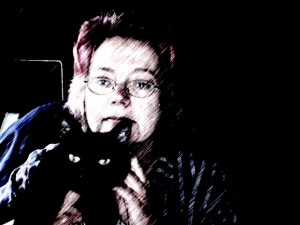Last week I talked about how blogging on Youtube can benefit writers, so I wanted to cover some of the Youtube basics necessary for a writer who wants to learn how to use it for self promotion. If you’re already technically savvy, much of this post will already be obvious to you, but the thinking about researching what others in the field are doing that’s mentioned at the end would still be a good practice.
First off, create a YouTube account. When picking your username, try to find something close to the one you use on your website. I use catrambo, which is the same username I use on Facebook, Twitter, and most other social networking sites. You want a name that your watchers can connect with your books, so they can find them later on.
YouTube has some social network functions. You can use your account to comment on or “like” other users’ videos and make lists of your favorite videos. You can subscribe to other people’s video streams in order to get notifications when they add new content. Buttons underneath videos allow you to share favorites with other social networks, including Facebook, Orkut, StumbleUpon, Twitter, Tumblr and many more. You can even set your account to publish updates to networks when you like a video or add it to a list as well as when you upload your own videos. Check here for some additional Youtube essentials.
When you start uploading videos to your account (and the post on that is not yet written) , you’re creating your YouTube video channel, which others can subscribe to. You can customize your channel (click on your account name in the upper right hand corner and when a menu appears, select “My Channel”) by giving it a name, modifying the colors and choosing what information to display on your channel’s page, such as event dates, a list of YouTube friends, and who’s subscribed.
But before you start making videos, spend some time poking around and seeing what others in your field are posting to YouTube. You’ll see commentary on book covers, book trailers, book reviews, interviews, readings, news magazines, and more.
Such research will serve you in good stead when you can thinking about what sort of content you want to be using for your blogging on Youtube. But for now – go watch a video or five, all in the name of research.









2 Responses
Oooh, I like this idea a lot. It appeals to me more than twitter, because it sounds like it targets readers more than other writers. There’s more effort involved, but I think it would be worth it to try it out.
I’d had an account for years and never thought of using it for blogging, but then again, I’m not really the blogging type. I am a videographer though. …on to that research!
Thanx.